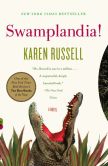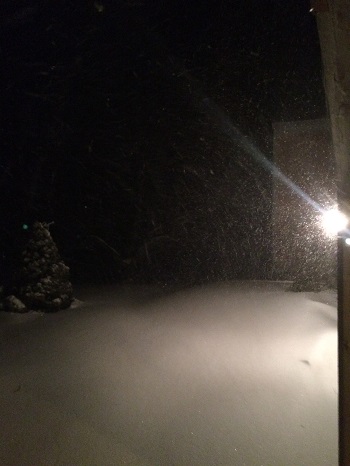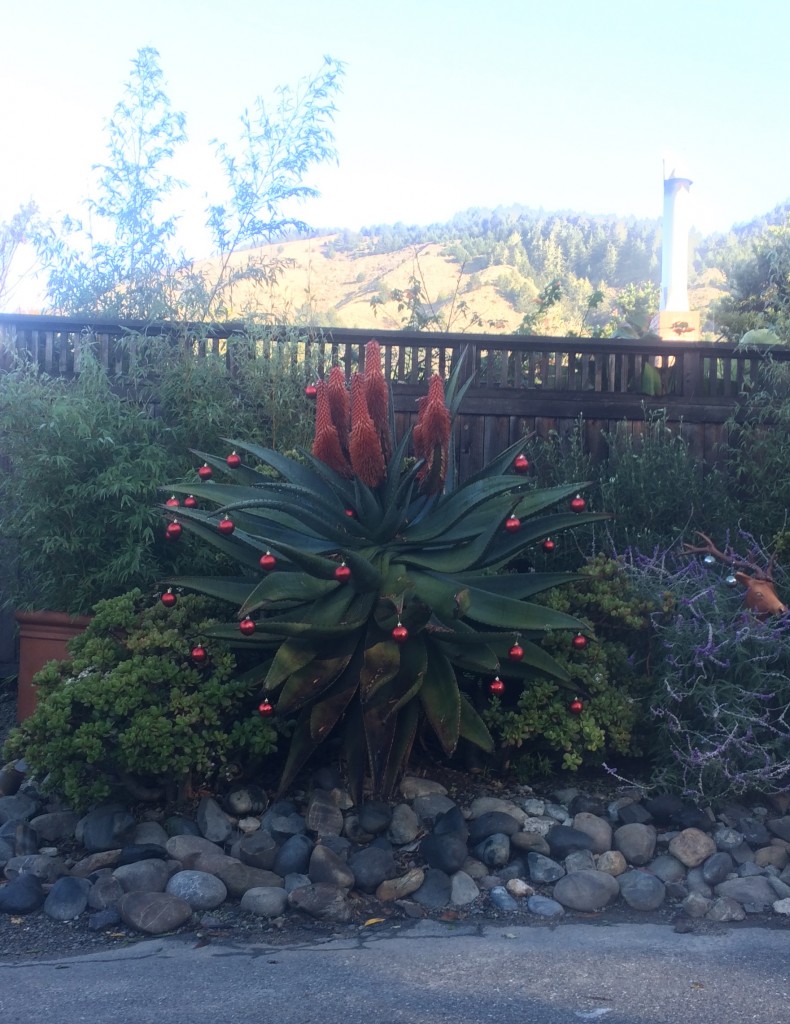Author: John
Declassified: Julia Child’s OSS Cook Book
Originally posted on Open Salon on August 15, 2008.
Fast on the heels of this week’s news that Julia Child, the grande dame of French cooking in America, was a spy for the OSS, comes the announcement of a new cookbook due out this fall: Mastering the Art of OSS Cooking by X45 or as she’s known to us now, Julia Child. Every agent devoted to both country and good cooking will find this book indispensable, as it brings the elan and breadth of French cuisine to everyday situations, such as poisoning a prime minister or smuggling aircraft parts out of the country in a sausage truck.
The catalog of the publisher, the Defense Culinary Institute of Bethseda, MD, lists only a few titles, at least as far as publications with ISBN numbers go. But its little book, Last Call: Cocktails for Saying Farewell to Old Friends and Suddenly Transferred Colleagues, has developed a small but devoted following, and its reviews have been nothing less than glowing.
Life-long fans and students of Julie Child who were confused or troubled by the news that their mentor and favorite chef was a spy will take heart when they see these recipes. The master’s wit and attention to detail never deserted her, even when she was brining picoline olives in truth serum or whipping up a five-course, arsenic-laced dinner for twelve at a German officers’ club.
With the permission of the publisher, here are a few of Julia’s recipes from those dark years in the middle of the century, when armies criss-crossed Europe and any chef’s toque might conceal a rolled up set of battle plans or a circular hoop of piano wire.
Microfilm en Croute
It has become a common practice in all parts of France to swallow microfilm whenever the occasion merits. A heavy rap on the door or the unexpected sound of boots running through a courtyard triggers the old Gallic gusto, and the film, often concealed in a small metal capsule, goes down toute nue, perhaps washed down by a simple Aligoté.
But if time allows you can prepare the microfilm en croute or even in a light flakey crust. French housewives often keep a roll of such pastry ready in the ice box for just such occasions: the unexpected discovery of a fresh basket of berries or the sudden presentation of a very official-looking search warrant.
The en croute preparation is simple enough. Simply slice a piece of bread about half an inch thick, then divide the bread again into square two inches on a side. Press the bread firmly in the center, creating a little depression, then insert the canister. If the microfilm is not in a canister, make sure it is rolled tightly. In Brittany, some locals prefer to bind the film with a strand of seaweed, which keeps the film from unfurling and catching in one’s throat, and adds a pleasantly sharp sea flavor to the ensemble. Grate cheese and broil or bake for five minutes.
The size and shape of the bread can be altered to accommodate other objects, such as house keys, foreign coins, and tiny aircraft parts.
Oie Braisée aux Marrons et Short-wave Radio
Braised goose is more tender and flavorful than roast goose, and covered braising ensures that the bird retains its moist, tender flavor, even when the rib cage is concealing a short-wave radio. French kitchen lore says that radios and goose are a difficult combination, and the practice, once popular near Rouen, of threading an aerial through the goose’s neck, has now largely been abandoned. In certain intellectual circles, it has become popular to rinse the bird in heavy water before braising it. Ask your host for heavy water. If none is available, it acceptable to substitute something lighter such as rose water or even American beer.
Composed Salad with Strychnine Gêlée
Dinner with double-agents can unnerve even the most capable French cooks. One wants to extract as much pleasure and information from the meal as possible without ever turning one’s back on guests or, heaven forbid, leaving the room to tend a boiling pot.
A composed salad is ideal for situations like this. The greens can be prepared ahead of time and a generous helping of the aspic-like dressing plopped onto the guest’s plate during a lively discussion about a painting on the far side of the room. It’s best to for the cook to have eaten heartily first, in order to beg off on the salad course. All leftovers, including guests, should be promptly disposed of in compost.
Photo: Julia Child restore” by Original is polaroid photo taken by Elsa Dorfman in 1988
derivative work: Scewing
Julia_child1.jpg: Elsa Dorfman – Julia_child1.jpg. Licensed under CC BY 2.5 via Wikimedia Commons.
Between Storms
American Ideas I
If we can just give enough people guns, we’ll eventually get our violent crime rate down to that of countries that don’t allow guns at all.
Denise Levertov Sings a Mass of Doubt and Compassion

If the divine ever manifests in our lives, does it arrive like a performance of Haydn’s “Creation” performed in a grand baroque church, twisting gold columns ablaze with slanting light while choirs and brass instruments amaze the air? Does it arrive like an unexpected footstep behind us on a gravel path, prefiguring a stern reckoning, a sober and exhaustive telling of wrongs? Or, more terrible, as a vision of hellfire and ruin thrust into our minds like a dagger that sets us wriggling and thrashing the bedsheets? Or, is it both uncanny and more ordinary, explicable in retrospect only as a miracle—the wallet found lacking a driver’s license but brimming with much-needed cash, the stranger who offers the ride on an empty road mid-deluge, the X-ray suddenly clear of a foreboding blot?
Or, more simply, does it arise as a kindling of compassion within ourselves? Is the divine, sometimes at least, a humble thing, quiet, dim, bestirring not angels nor rejiggering the universe’s set order of probabilities, but merely eliciting in our hearts graciousness and concern, a pressing need to care for others, including—the sweep of this question will to some seem blasphemous—even the divine itself?
I’m struck by two poems about doubt and the divine by Denise Levertov (1923-1997), a British-born American poet who converted to Catholicism late in life. Both poems concern St. Thomas Didymus, also known as St. Thomas the Doubter, the infamously all-too-human apostle who said, “Unless I see the nail marks in his hands and put my finger where the nails were, and put my hand into his side, I will not believe.”
John 20 (KJV) tells the story:
24 But Thomas, one of the twelve, called Didymus, was not with them when Jesus came.
25 The other disciples therefore said unto him, We have seen the Lord. But he said unto them, Except I shall see in his hands the print of the nails, and put my finger into the print of the nails, and thrust my hand into his side, I will not believe.
26 And after eight days again his disciples were within, and Thomas with them: then came Jesus, the doors being shut, and stood in the midst, and said, Peace be unto you.
27 Then saith he to Thomas, Reach hither thy finger, and behold my hands; and reach hither thy hand, and thrust it into my side: and be not faithless, but believing.
28 And Thomas answered and said unto him, My Lord and my God.
29 Jesus saith unto him, Thomas, because thou hast seen me, thou hast believed: blessed are they that have not seen, and yet have believed.
I have to admit to always having felt ambivalent about this passage. I have no doubt that over two millennia John 20:29 has been quoted by countless rhetoricians of far less merit than Jesus to beguile rightfully skeptical people who received for their confidence something far less than eternal salvation. If you’re going to start a religion, or sell a miracle cure, or fund-raise for a mega-church whose pastor needs a private jet and Brioni suits for trips to Ghana, canonically extolling the virtues of those who believe soley on hearsay is a powerful rhetorical stroke.
Levertov converted to Catholicism late in life, so one might explain her sympathy with doubters by her having lived much of her adult life drifting between Christianity, Judaism, and a humanist mysticism, the drifting being evidence that none of these creeds proved to be thoroughly convincing and hence impervious to doubt. I suspect, though, that doubt is even common among life-long believers of a single faith (and a recent Pew survey found that doubt or disbelief is more common than one might expect across all religions). The human mind naturally circles, wanders, and probes, and life’s evidence often lands outside the tidy boundaries foretold by calculating philosophers and confident preachers. In this world, belief and doubt go together.
In her poem “St. Thomas Didymus,” Levertov describes Thomas confronting his doubt as he reaches his hand into Christ’s wound. In this poem, Thomas’s doubt is not shamed as the craven disbelief of a fallen soul spurning God:
But when my hand
led by His firm hand's clasp
entered the unhealed wound,
my fingers encountering
rib-bone and pulsing heat,
what I felt was not
scalding pain, shame for my
obstinate need,
but light, light streaming
into me, over me, filling the room
as if I had lived till then
in a cold cave, and now
coming forth for the first time,
the knot that bound me unravelling,
I witnessed
all things quicken to color, to form,
my question
not answered but given
its part
in a vast unfolding design lit
by a risen sun.
In this telling, Thomas is not shamed for his doubt, his “obstinate need” for physical proof of Jesus’ resurrection and divinity. Rather, his all-too-human doubt is “given its part” in a greater unfolding design. Receiving this gift, Thomas encounters—he “witnesses,” a verb that here straddles both awe and empiricism—a new world. He feels as though he is escaping a cold cave (which might be Plato’s cave or a burial chamber) to experience creation, marveling as the world assumes color and form in the light of a true, manifest sun. Doubt has been subsumed into a greater, glorious certainty.
For most of us, though, doubts persist. We can live long lives without experiencing any kind of glorious confirmation of a greater “unfolding design.” So let’s consider another of Levertov’s treatments of St. Thomas and doubt. She explored these themes in a longer poem, “The Mass for the Day of St. Thomas Didymus,” whose six sections are named for parts of a Latin mass.
As with other masses, Levertov’s begins with a “Kyrie,” which traditionally is both an expression of thanks and an invocation of mercy. But this mass was written in the Cold War. The voices asking for mercy are filled with dread. The community may be the “first and last witness” of “the world’s death.” Whatever form mercy might take remains beyond the imagination of the community of believers, who lack the hard evidence of salvation inherent in a “vast, unfolding design.” Hope, therefore, can lie only in the unknown, in a salvation we can’t quite see clearly in the bleak world before us. And that same unknown harbors terrors. One can only ask for mercy.
We live in terror
Of what we do not know,
in terror of not knowing,
of the limitless, through which freefalling
forever,our dread
sinks and sinks,
or,
of the violent closure of all.
Yet our hope lies
in the unknown,
in our unknowing.
O deep remote unknown,
O deep unknown,
Have mercy on us.
In the next section, “Gloria,” the divine remains remote, though Levertov can sense its beneficial presence and power.
Praise
the invisible sun burning beyond
the white cold sky, giving us
light and the chimney's shadow.
Praise
god or the gods, the unknown,
that which imagined us, that stays
our murderous hand,
and gives us
still,
in the shadow of death,
our daily life,
and the dream still
of goodwill, of peace on earth.
The divine is so remote that Levertov cannot make out how many gods she should be invoking. (Like a drowning woman, she thrusts out her hand, regardless of just how many rescuers she may have glimpsed at the pond’s edge.) Whether one or many, only this indefinite divinity can stay mankind’s murderous hand. Whatever dreams of peace and goodwill we have, we have because they have been given to us.
In a traditional Mass, celebrants profess their beliefs, typically in the form of the Nicene Creed, in the “Credo.” For Levertov, even her profession of faith is riven with doubt. She writes:
I believe and interrupt my belief with doubt. I doubt and interrupt my doubt with belief. Be, beloved, threatened world. ... Be, that I may believe, amen.
As it did for Thomas in the first poem, the created world caps her belief, but hers is not a glorious world secure in a greater, vast, sunlit design. Threats remain.
In the “Benedictus,” Levertov praises that which comes in the name of the spirit. The spirit manifests itself in the world around us: in the ordinary material world, in language, and even in the world of carnivorous beasts. Her tiger springs on its prey, but it is not greedy or scheming or cruel; it is simply responding to its natural hunger—its own needs and those of its young. This is a moderate tiger, and because it is moderate, it is moral.
Blessed is that which comes in the name of the spirit,
that which bears
the spirit within it,
The name of the spirit is written
in woodgrain, windripple, crystal . . . .
In the lion's indolence,
there spirit is,
in the tiger's fierceness
that does not provide in advance
but springs
only as hunger prompts
and the hunger
of its young.
And yet, despite nearly pantheistic manifestation of the divine, uncertainty remains. The word has become flesh (and woodgrain and windripple), but “in the blur of flesh, we bow, baffled.”
In the final section, “Agnus Dei,” the Lamb of God finally appears. It arrives not in triumph as an exemplary sacrifice empowered to set the world’s wrongs right and to illuminate the world with a dazzling clarity; no, it arrives instead as an object of pity. And we, recognizing the weakness and vulnerability of this still remote being (a “dim star” rather than a sun god), step forward as moral actors and rescue it. Finally we stay our own murderous hands and at last become care-givers of what we encounter. Experiencing God, we become merciful—to God and to creation.
Given that lambs are infant sheep, that sheep are afraid and foolish, and lack the means of self-protection, having neither rage nor claws, venom nor cunning, what then is this 'Lamb of God?'
It is a creature:
With whom we would like to play, Whom we'd lead with ribbons, but may not bring into our houses because it would soil the floor with its droppings?
Incontinence is not a lamb’s only shortcoming. It also lacks intelligence.
What terror lies concealed
in strangest words, Oh lamb
of God that taketh away
the Sins of the World: an innocence
smelling of ignorance,
born in bloody snowdrifts
licked by forebearing dogs
more intelligent than its entire flock put together?
Levertov asks:
is it implied that we
must protect this perversely weak
animal, whose muzzle's nudgings
suppose there is milk to be found in us?
Must hold to our icy hearts
a shivering God?
And she answers:
So be it.
Come, rag of pungent
quiverings,
dim star.
Let's try
if something human still
can shield you,
spark
of remote light.
Shielding a spark as though it were a flickering match about to blow out—the lamb of God is quivering like that. Within our cupped hands, we rescue God’s light from guttering out.
For Levertov, the divine manifests itself in this world not (or not always) an all-powerful God rescuing abject sinners, but rather as compassion rising in the hearts of mortals to care for whatever appears before them, which might just be a quivering lamb.
Why do I prefer this unorthodox scenario of God the rescued to the traditional scenario of God the rescuer, God the omnipotent, disappointed, and wrathful restorer of a world mangled by sinners? In part, it’s because over the years I’ve noticed that many of the people who thunder on about God’s power and majesty have hardened their hearts to anyone who doesn’t praise their particular manger in their particular way. While their mouths sing praises of a pure, kind-hearted lamb, their boots seem always to be seeking whatever unfamiliar or unrepentant dog they deem deserving of a kick. Whereas those people I’ve known who accept the “blur of flesh” and bafflement seem more readily to recognize and respond to those many dim stars around us that need shielding.
But we can examine Levertov’s cosmology systematically, too, setting aside personal reactions like mine to the religious and political shaming of the weak. Consider three possible relationships between God and humanity. In each, humanity has an obligation of gratitude and obedience to its Maker.
A wrathful God can order us to be compassionate. Our compassion, in this case, arises out of fear. We obey the commandments and muster compassion, while glancing behind us for thunderbolts.
A peaceful God can enjoin us to be compassionate. By imitating God who is compassionate to us, we learn to be compassionate to others. If we fail in our imitation, those around us suffer, but God, presumably, does not (except, perhaps, through sorrow).
In the third scenario, the Mighty becomes meek, and the responsibility for compassion is thrown entirely on us. We become the shepherd, finding the shivering, shit-smeared lamb in a snowdrift. We become the savior, saving the meek—not in any kind of Luciferian revolt, but through love. We rescue God, and the world saves itself. (As startling this idea might be to Christians, it’s hardly heretical to Buddhists.)
There’s no pride or defiance in this role. There is simply love, the love of “icy hearts” learning to thaw.
It’s a non-dualist vision of the world (or nearly so). God is close, and when pressed, our hearts discover after all that they can glow.
A Buddhist PostScript
On Facebook a few months ago, a Buddhist was describing how he explained Kuan-yin (Avalokiteshvara, a legendary bodhisattva revered as the manifestation of compassion) to prison inmates. In Buddhist art, Kuan-yin is sometimes pictured with a thousand arms.
“Why does she need so many arms?” one of the prisoners asked.
“Let’s see,” said the teacher, looking around the room and counting. “One, two. Three, four . . . .”
She needs all those arms, because we who do the work of the goddess of compassion.
Love’s Spotlight: Quoting Swamplandia! on St. Valentine’s Day

I think this passage nicely conveys the work inherent in devotion (and perhaps other aspects of love, as well):
“You know, my father trained himself to be my mother’s sun, electrically speaking.”
That was exactly how my dad described the job of love. The Chief rigged the lights for Mom’s act years and years ago, on their fourth date—he dreamed up the lights and the choreography for her show before she’d ever so much as touched an alligator. This was a popular story on our island (Bigtree Museum, Exhibit 12). After she became a wrestler and started evening performances, he operated the follow spot. I’d always try to find a way to be backstage for this part. Love, as practiced on our island, was rough work: the blind eye of the follow spot took all your strength to direct and turn. Every night the Chief ratcheted its yellow-white iris around my mother’s muscular back on the diving board. The follow spot we used was decades old, heavy, with poor maneuverability, and the Chief struggled to hold the beam steady. I remember his hands better than his face (I was a short kid): the square nails discolored against the metal, his big knuckles popping from the pressure of his grip like ten white valentines.
My mother did her breaststroke inside the spot’s golden circle of light, growing smaller and smaller as she headed for the deep end. “Now watch this,” my father would say, smiling at me as he changed the color filter and adjusted the iris diaphragm. By the end of her performance his shirt was soaked with sweat.
Happy St. Valentine’s Day.
Maple Tree in Snow
Tips for Surviving a Blizzard
 A blizzard of historic proportions is upon us as I write. We feel prepared. We’ve been through some bad winter storms and power outages here over the years.
A blizzard of historic proportions is upon us as I write. We feel prepared. We’ve been through some bad winter storms and power outages here over the years.
Of course, I really had no idea how to get through a storm like this when we first moved to New Hampshire. In my previous life, the coldest thing I ever experienced was the side-eye the Berkeley City Council would give any landlord who talked about raising the rent. Now I’m acclimated to 10 degree days and subzero wind chills. (Turns out it’s different, but not that different.)
In case you’re new to blizzards, here are some tips for surviving and even thriving in blustery Klondike weather, plunging temperatures, darkness, the roar of snowplows in the night, the thud and crack of the mailbox getting swept aside, etc.
Q. What’s the most important thing to do?
A. Prioritize. For example, when the power’s been out for five days, and you’re running low on wood for the stove, which furniture are you going to burn first? And if the answer is that old rocking chair up in the spare room, hadn’t you better move it by the stove before the power goes out?
Q. Should I stock up on the Coleman camping lanterns?
A. Don’t bother. They don’t work. Oh, they work in theory, but remember how when you got them out the youngest children were jumping up and down with excitement about camping, and then disappeared while you and your spouse were discussing where to stow the gas for the generator? By the time you call everyone down for dinner and eat dinner and do the dishes and a strong gust of wind comes and knocks out the power and you ask if anyone’s seen the lamps, you’ll learn that the kids were using them under their bed sheets to play camping. And that’s where the lanterns are: under the bed sheets, turned on full. So now all the batteries are dead. Just stick to candles. They’re quieter. They save a lot of yelling.
Q. What about Duraflame logs?
A. Yes, they’re edible. We usually serve ours with a snow/peanut butter glaze, but after three days without power and with the roads to the store still impassable, almost any flavored liquid from your dark, quiet refrigerator will do. Salsa? Sure. Yesterday’s chicken soup? Absolutely. The liquified lettuce at the back of the vegetable bin? Er, probably not.
Q. I was feeling my way through our darkened kitchen and suddenly ended up flat on my back. What happened?
A. You just interrupted a road race. Actually, you ruined it. Your youngest thought it would be cool to have her Hot Wheels race at night, and you just stepped on the lead car. Better pull yourself up and go hunting for it before someone carrying jugs of water to flush the toilet steps on it and makes a big puddle in the middle of the room.
Q. The storm is over, and the power’s back on. Can I kick up my heels?
A. You could, but you should probably save that energy for shoveling the walks, shoveling out the dog’s kennel so she stops using the driveway, raking the roof, shoveling away the snow you just raked off the roof, and plodding through the snow to find all the pieces of your mailbox.
Q. Do these storms happen often?
A. Do you really miss the Berkeley City Council that much?





